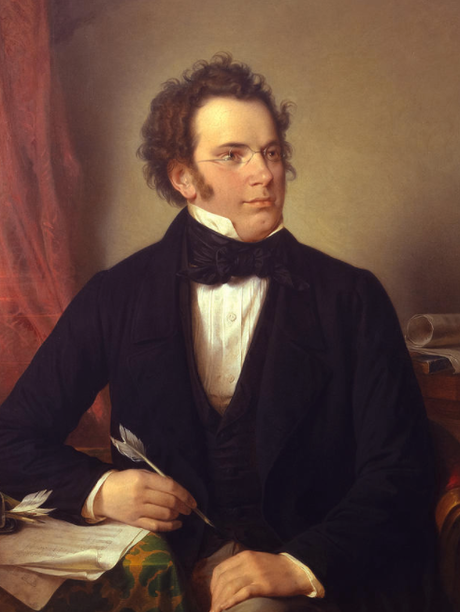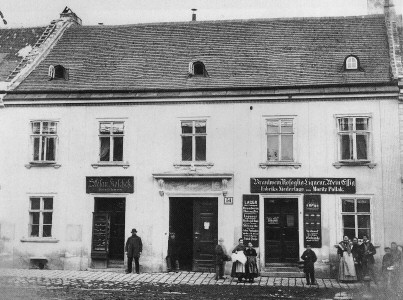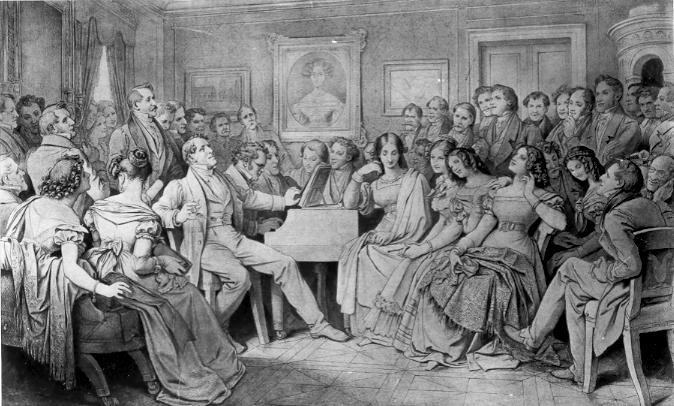Table of Contents
Introduction

In this article I would like to talk to you in the most practical and concise way possible about the figure of Franz Schubert (1797-1828), considered by many great musicians, including Vladimir Horowitz, the greatest compositional genius in the History of Music; we will talk about his impromptus, which encroach on the margin of existence and lead us not to “a” stillness but to inorganic nature, to the abandonment that the mystic sought so much, – if it can be described or even worse represented by the echo of a trace that is missing, from the subsequent disbelief towards an experience that has never been lived – to the feeling that everything in this world is to be traced back to the instinct, instantly, to the prime number. That any superstructure is basically inconceivable. Who knows if the philosopher Giorgio Colli would have been in tune with this: “If the person of Franz Schubert was broken, it does not prove anything against him. In return, he left us a different image of Man: and it is with this that we must measure ourselves”. A good read!
Biography at a glance

Franz Schubert is inextricably linked to the city of Vienna: there he was born and worked on almost all his works. He was partly a classicist, and from previous articles we already know that Vienna was home to this current. But Schubert linked his style to new solutions, already close to the romantic current, for this reason we ascribe it to that succession of figures (of which we have spoken in previous articles) that are halfway between two great phases of the History of Music: in this case, between Classicism and Romanticism. Some manuals of Musicology place the Viennese composer among the initiators of the Vienna school, other manuals exclude him from the First Vienna School and already consider him a romantic. He began his education with his father and decided very early on to devote himself to composition: never obtaining an official or prestigious position in the Habsburg capital, Schubert had to find ways to earn a living through his compositions. He had many friends, who gathered to listen to his compositions and celebrate his genius. These meetings, which took the name of Schubertiadi, took place from the beginning of the 20s of the nineteenth century. Schubert and his friends found themselves in taverns or temporary accommodation. Only later did the Schubertiades begin to take hold in private salons.
The reasons for economic failure
The reasons for the economic failure that Schubert faced in life can be many: several manuals of History of Music tend to agree that one of these was the complexity of his musical style, which provided for great agility in transport and modulation in general. In a previous article we have already seen that the musicians of the Schubert era, especially in Vienna, were not only professionals: on the contrary, music could be performed by amateurs who did not have a real musical training as we understand it today. the pieces were performed at first sight, often without studying them. We have already talked about this widespread practice at the time in an article that you can find here. In the last period of his life, about the last three years, Schubert gained a greater celebrity that however was absolutely not comparable to that of many of his contemporaries. Schumann, of whom we wrote an article that you can find here, was one of those composers who helped promote the work of the Viennese composer, having discovered the great symphony and having reviewed its first performance. Another contemporary composer who contributed to the launch of the figure of the Viennese musician was Franz Liszt, who transcribed for piano and orchestra the Fantasia Wanderer.
Franz Schubert: What did he write?
When we think of Franz Schubert, we very often think of the picture of a pianist sitting on his instrument, dedicated to writing for the eighty-eight keys and performing in drawing rooms. The truth is that Schubert wrote music belonging to various compositional styles, for example a lot of orchestral music (a lot really, if compared to the average of the compositions of his time and the early age of death of the Viennese composer). Here, to get an idea, a list of the symphonies and other orchestral compositions of Franz Schubert:
- Symphony No. D 2B in D major (1811)
- Symphony No. 1 in D major D 82 (1813)
- Symphony No. 2 in B flat major D 125 (1814-1815)
- Symphony No. 3 in D major D 200 (1815)
- Symphony No. 4 in C minor La tragica D 417 (1816)
- Symphony No. 5 in B flat major D 485 (1816)
- Symphony No. 6 in C major A Little D 589 (1817-1818)
- Symphony No. D 615 in D major (1818)
- Symphony No. 7 in E major D 729 (1821)
- Symphony No. D 708A in D major (1821)
- Symphony No. 8 in B minor Unfinished D 759 (1822)
- Symphony No. 9 in C major A large D 944 (1825-1828)
- Symphony No.10 in D major D 936a (1828)
- Overture in D major for the comedy Der Teufel als Hydraulicus by Johann Ernst Friedrich Albrecht for orchestra D 4 (1812?)
- Overture in D major for orchestra D 12 (1811)
- Overture in D major for orchestra D 26 (1812)
- Overture in B flat major for orchestra D 470 (1816)
- Overture in D major for orchestra D 556 (1817)
- Overture in the Italian style in D major for orchestra D 590 (1817)
- Overture in the Italian style in C major for orchestra D 591 (1817)
- Overture in E minor for orchestra D 648 (1819)
- Konzertstück in D major for violin and orchestra D 345 (1816)
- Rondò in A major for violin and string orchestra D 438 (1816)
- Polish in B flat major for violin and orchestra D 580 (1817)
In addition to Schubert’s piano and orchestral compositions, there are pieces of sacred, vocal, operatic and chamber music. We have not even mentioned the lieder production, which would be complex to present in a unitary list: Schubert in fact wrote over six hundred lieder, from early youth to maturity and shortly before his death. In conclusion, he was a very prolific composer, completely emancipated from the exclusively piano horizon to which the romantic heritage and representation in the visual arts have accustomed us.

The Impromptus
Schubert is popularly associated with the compositional form of the impromptus, having been among its greatest promoters. Yet this form was not born with him: in the religious sphere, suddenly a spontaneous song of the soul was associated, especially in mystical ritualistics (it is no coincidence that we have called Schubert a mystic of the piano). Although the small volume of his works in impromptus form does not suggest a particular attention of the composer towards this musical genre, we must nevertheless observe that today we find Schubert’s impromptus pieces among the most listened to pieces in the History of Classical Music. The attention to this compositional form is manifested in the Viennese author until a year before his death, with opus 142 representing a bizarre collection of movements that seem, at a careful glance, all belong to the same sonata. Schumann had already noticed this, rejecting the third movement and advancing the hypothesis of the unitary sonata for the other three. Today scholars agree that the publication of these pieces in the form of impromptus, which took place in single scores for each piece, was probably due to economic reasons. However, looking at the collection it is easy to notice a certain completeness of the songs, a fact that keeps the door of doubt open between stylistic choice and editorial choice. Below you can listen to the complete collection of the impromptus opus 142: later, you will find a banner where you can buy what in our opinion is the score most faithful to the original Schubertian. If you order it from the banner below, a small percentage of your purchase will go to support this blog.
In the score above you will also find the collection of impromptus opus 90, the most famous, of which we propose a listening below:
Conclusions
For this article on Franz Schubert is everything, do not forget to subscribe to our email form through the pop-up banner so as not to miss the news on the subject. In fact, we will have the opportunity to explore the scores of the Viennese composer in detail, in the Musical Analysis section. For the moment, see you in tomorrow’s article!
- History Of The Piano – The Fortepiano - July 12, 2022
- Curt Sachs – History Of Organology At a Glance - July 8, 2022
- Giuseppe Verdi – Rigoletto, Il Trovatore, La Traviata - June 29, 2022
